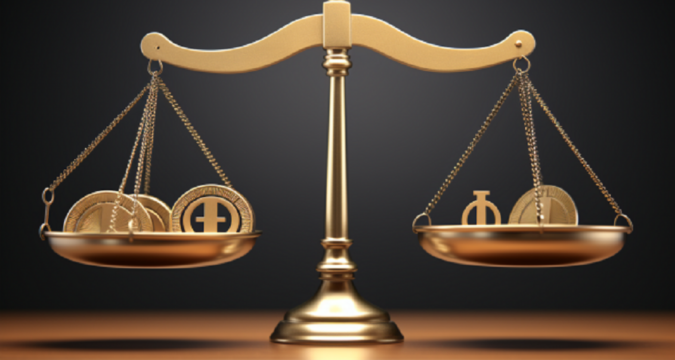
The latest report revealed that a South Korean court recently determined in a ruling that Bitcoin is not money. Hence, it ordered that the primary crypto and other cryptos are not subjected to the country’s Interest rate regulations.
According to the report, a South Korean court presiding over a case between two warring firms having issues concerning a BTC loan contract clarified that cryptocurrencies are not money. Hence, interest rate rules do not apply to transactions involving digital assets.
Reports revealed that the Civil Division of the Seoul High Court stated the rulings to settle the case between two unrecognized firms. During the case, the court mentioned that it was unacceptable to set interest on BTC borrowed as digital assets loans cannot be regulated with the rules that guided fiat currencies loans.
According to the report, the court case which brought about the ruling was between two firms—which were undisclosed— who signed a loan contract including Bitcoin in 2020. For easier identification, the report tagged the first and second firms, A and B, respectively.
Firm A was reportedly a financial technology company that deals in crypto assets. Meanwhile, firm B signed an agreement with the first firm to borrow a total of 30 Bitcoins and agreed to return it in three months.
Furthermore, the contract entailed that they agreed that firm B would pay an interest of 1.5 BTC (equivalent to a 5% rate) for the first and second months. At the same time, it is supposed to pay an interest of 0.75 BTC (equivalent to 2.5%) at the end of the last month.
However, the repayment did not go as planned, as firm B refused to repay the BTCs following their agreement. Nonetheless, firm A reportedly extended the loan’s due date to April 2021, according to the report.
But coupled with the date change came changes in the interest rates. Firm A reportedly increased the rate to about 10% of the total loan per annum, valued at 0.246 BTC per month.
Regardless of the extension, Firm B still refused to repay the loan as arranged in the second deal. This spurred Firm A to file a civil court case against its debtor.
During the court hearing, Firm B reportedly claimed that it could not pay the interest rate that was attached to the second extended agreement because its creditor violated the Loan Business Act and Interest Limitation Act of the country.
The debtor continued that Firm A has exceeded the limit of interest rates it is entitled to. However, the lower court that first presided over the case reportedly rejected the argument of Firm B.
According to the lower court, the loan contract was centered on crypto assets, which are not money. Hence, the interest limit that Firm B tried to claim only applied to loans based on money. Therefore, the court dismissed the case.
However, Firm B was unsatisfied with the court’s decision and appealed to the High Court. But to its dismay, the High Court reportedly support the lower court’s initial decision. Hence, they both agreed that Firm B should repay all the Bitcoins and interests stated in the contract signed.
The judge emphasized that the constitutional interest rate on loans or debts stated in the commercial regulation can only be applicable when a party has violated the rule.
However, the Judge pointed out that the 10% interest per annum that the two firms agreed on in the contract did not in any way violate any law because the contract was signed in Bitcoin.
Nonetheless, the South Korean legislature allows firms to appeal a court ruling two times. This implied that Firm B could still plead its case, challenging the lower court verdict at the highest court in the country, which is the Supreme Court. Firm B is yet to decide its next step of action at the time of writing.


